
The film centers on Algot Söderholm's two daughters, beautiful Magda and plain, less desirable Lena. Adapted from the 1910 play by Ernst Fastbom.

Mrs. Holmgren
Erik Andersson marries Brita Blomstedt. During the wedding party he drinks alcohol which he is not used to. Later that evening Erik is involved in a brawl that end with a policeman getting a knife in the back.

Tailor Vipperup in Ebberöd has problems with liquidity: customers are bad at paying for his services while his own creditors are all the more intrusive. His consolation in life consists of his daughter Ellen and the faithful companion Tadeus. However, the repulsive trader Klemmensen, the town's richest man and most ruthless usurer, casts more and more lustful glances at Ellen.

The criminal couple Louise Kent and Charles Zukor stages a coup in the luxury restaurant Oriental. In the midst of a dance number goes suddenly all the lights out. In the confusion that arises one of the elegant guests is deprived of her jewelry.
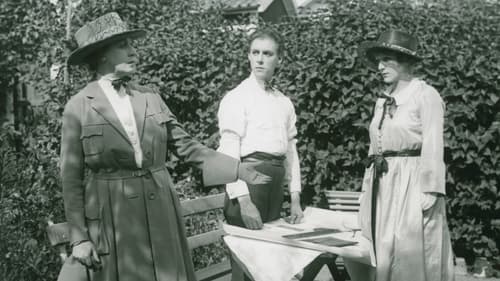
Old Hanna
A woman searches for the child she gave up at birth.

When two riders come to the monastery seeking shelter for the night they inquire from one of the monks about the founding of the monastery. The old monk reluctantly recounts the story of Count Starschensky, a nobleman of wealth and property. Starschensky is blessed with domestic happiness, however, he later finds that his young wife, Elga, has been sneaking her lover into the castle in evenings when he is away, and that their only child is not his, but a product of this affair. Tragedy ensues and the count sells his estates and establishes the monastery as part of his penance.

Bergsradinna
The mayor's son Mauritz Fristedt, has become deeply in love with the baker's daughter Dunungen. The mayor applauds the engagement because Mauritz will to try to foist a pack of worthless shares from his uncle to his father-in-law.
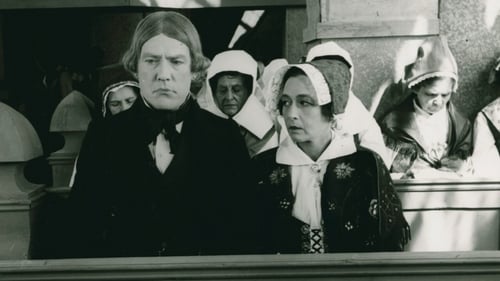
Karin
Part one of an ambitious screen adaptation of Selma Lagerlöf's book Jerusalem.
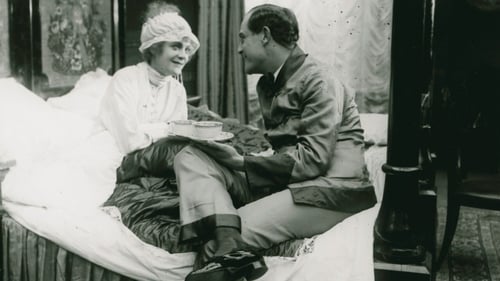
Clotilde Douglas
Frau Bessie, once a madcap, aristocratic and modern Swedish fraulein, has become now a whimsical and conservative Swedish burgess after her marriage to Herr Thomas Graal. The destabilization of the marriage begins right at the wedding (which contains some hilarious incidents) when Frau Bessie announces the first Graal child must be a girl, creating a terrible conflict with her husband who is hoping for a boy. It takes a scandal to finally end the war between man and wife.
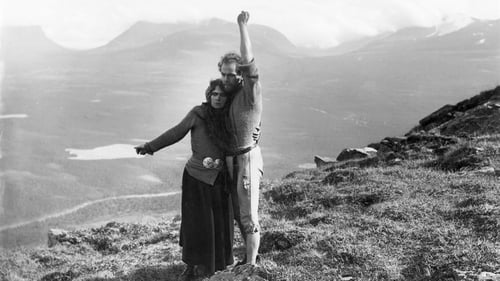
Gudfinna
A stranger comes to work at widow Halla's farm. Halla and the stranger fall in love, but when he is revealed as Eyvind, an escaped thief forced into crime by his family's starvation, they flee and become two of the many outlaws of Iceland's mountains.

Hildur's Mother
A 1917 Swedish drama film directed by Victor Sjöström, based on a 1913 novel by Selma Lagerlöf. It was the first in a series of successful Lagerlöf adaptions by Sjöström, made possible by a deal between Lagerlöf and A-B Svenska Biografteatern (later AB Svensk Filmindustri) to adapt at least one Lagerlöf novel each year. Lagerlöf had for many years denied any proposal to let her novels be adapted for film, but after seeing Sjöström's Terje Vigen she finally decided to give her allowance.

Clotilde Douglas
Thomas Graal's a screenwriter, is very fond of his secretary Bessie. Overtaken by a kiss by Thomas she runs away. In his misfortune Thomas writes a screenplay inspired by Bessie. But she has not been really honest with him. 31 minutes of runtime are missing and presumed lost.

Woman on Beach
선원 테리예 비겐은 잔인한 남자의 손에 가족을 잃는다. 몇 년 후 운명은 그에게 복수의 기회를 제공하는데...

Anjuta's stepmother
Lovers are torn apart by a noble's desire for the female half of the couple.
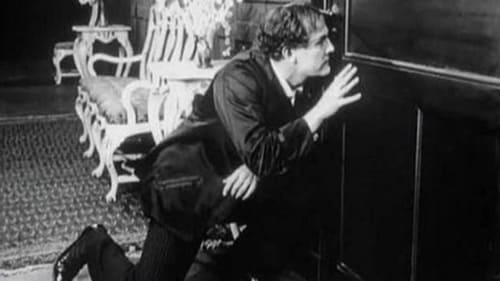
Anna Harper
After the respectable Dr. Monro was found dead, the housekeeper and two engineers testify in court. A case of commercial delinquency and bribery is reconstructed on that occasion. Sadly only about half the film exists today.

Eric's Mother
A woman journalist employed as a maid by a great explorer is overcome with remorse at revealing his private life to the public. He shares her feelings and marries her

Mrs. Arnold
Two smugglers meet two customs officers at sea, and happen to kill them. The story continues fifteen years later when a son of one of the officers and a smuggler's daughter fall in love with each other.

Georg's mother
Hämnaren (The Avenger) was made in 1915, and was rediscovered in Berlin in 2001. It begins with a woman named Ester, who is reading a letter and crying. The letter says that a man named George won't marry her, because he knows his father would never allow him to marry a Jewish woman. Ester dies of childbirth, and possibly a broken heart. Her suitor Jakob takes care of her son, who is named Josef, and sends George a note, accusing him of causing her death

Ruths mor
Ruth has had a happy childhood until her family falls on hard time. Not wishing to be a burden she decides to get a job but she's having a hard time getting one until she gets the idea to dress up as a boy and get a job as a milkman.

Holms mor
During a duck hunt the local land owner Brandt has told his ranger and his son to sit in a boat and collect ducks as they are shot down. When Brandt's dog gets in the water he commands the ranger's son to jump in the water to save the dog but the boy drowns.

Based on the novel Lourdes by Émile Zola.

Ivan's Mother
Two brothers compete for the love of a woman while the impending war threatens to separate them from both sides of the border. Based on the novel "La Débâcle" by Émile Zola.

Pauper
After Ingeborg Holm's husband becomes sick and dies, the family's small grocery store fails, Ingeborg becomes bankrupt, and she is forced to move to the workhouse. Her three children go to foster homes. Ingeborg simply must see them again.
















